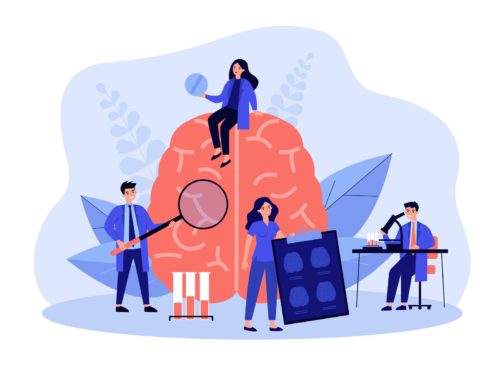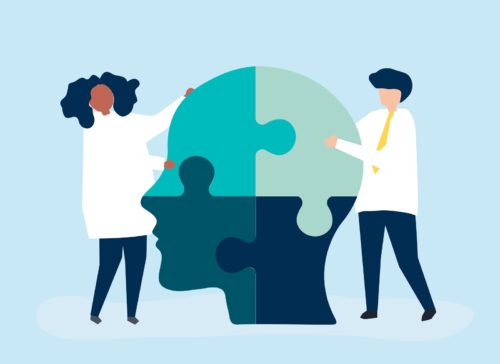Emotional, physical, and mental health are crucial for development during young adulthood. But due to the difficulties of adolescence, some teens have trouble flourishing physically, mentally, and emotionally all at once, especially if they’re experiencing symptoms of emerging mental illness such as anxiety and depression. While seeking mental health treatment is always a good idea, one way for young adults to begin taking better care of themselves at home is by practicing self-care.
Continue reading “Why Self-Care Is Essential for Good Mental Health Among Young Adults”Category: Uncategorized
11 Tips for De-Stressing During the Holiday Season — and Beyond
The winter holidays are a relaxing time of the year for many people. Opportunities to take a break from work, enjoy tasty food, and connect with family and friends all abound during the holiday season. However, you aren’t alone if your stress levels spike during the holidays or you tend to start feeling strange, sad, or isolated.
Continue reading “11 Tips for De-Stressing During the Holiday Season — and Beyond”How to Support a Family Member With PTSD
Post-traumatic stress disorder (PTSD) is a mental health condition that occurs after a traumatic event. It’s common in certain groups, including people who have been to war and homeless populations. Because it can have far-reaching effects on a person’s quality of life, many people search for strategies and tactics to help support a family member with PTSD. At Hope Springs Behavioral Health, we understand, and we’re happy to help.
Continue reading “How to Support a Family Member With PTSD”Family Therapy: What to Expect and How to Prepare
Deciding to participate in family therapy is a big step in resolving family disagreements, decades-long resentment and bitterness, and personality clashes. It’s normal to feel anxious about your first session because you may not know what to expect, and you might feel there’s a lot riding on therapy to resolve family issues.
Continue reading “Family Therapy: What to Expect and How to Prepare”How to Help Your Partner Cope with Anxiety
Everyone faces anxiety at some point in their lives, but that doesn’t mean everyone experiences it the same way or copes with it using identical tools. It can be especially challenging to navigate these differences in the thick of a high-anxiety moment in partnerships and committed relationships. No one goes into a relationship knowing exactly how to anticipate their partner’s needs, feelings, and ways to comfort them. However, it can be rewarding to learn how to make your partner feel seen during these moments and help soothe their anxiety as they process difficult feelings.
Continue reading “How to Help Your Partner Cope with Anxiety”How Group Therapy Can Help Behavioral Mental Health Issues
Group therapy is a type of coaching that involves one or more psychologists leading a group of 5 to 15 people through therapy sessions. Being part of a group during therapy can be a rewarding experience. Group coaching can be uniquely designed to bring quick relief from various mental health issues such as depression, stress, anxiety, and many more. Group members typically meet once or twice a week for between 90 and two hours.
Continue reading “How Group Therapy Can Help Behavioral Mental Health Issues”Coping With Pandemic Re-Entry Anxiety
Life has changed a lot since March 2020. Millions of Americans have endured a global pandemic, including mass death, disruption of routine, loss of jobs and wages — not to mention all the emotional ups and downs of being at home all the time. However destabilizing and exhausting the last year has been, many find themselves caught off guard by feelings of re-entry anxiety.
Continue reading “Coping With Pandemic Re-Entry Anxiety”The Benefits of Therapy for Grieving Families
Bearing the loss of a loved one is never easy. Unfortunately, grief is an inevitable part of life. If the death of a loved one hits too hard and you have struggled for long to cope, you may need professional therapy to help you navigate the situation.
Continue reading “The Benefits of Therapy for Grieving Families”What to Know About Testing for Behavioral Disorders
Behavioral disorders can be categorized in several different ways. In general, behavioral disorders are any pattern of behavior that regularly interferes with an individual’s ability to live a physically and mentally healthy life for more than six months. Though behavioral abnormality is a common symptom of bipolar disorder, depression, anxiety, schizophrenia, and other mental health disorders, behavioral disorders are diagnosed separately.
Continue reading “What to Know About Testing for Behavioral Disorders”What Is Behavioral Health, and How Is It Different from Mental Health?
Behavioral health and mental health are often confused as being the same thing. It is a common misconception that both terms refer to similar treatments and outcomes in the medical field. However, this could not be further from the truth.
Continue reading “What Is Behavioral Health, and How Is It Different from Mental Health?”









